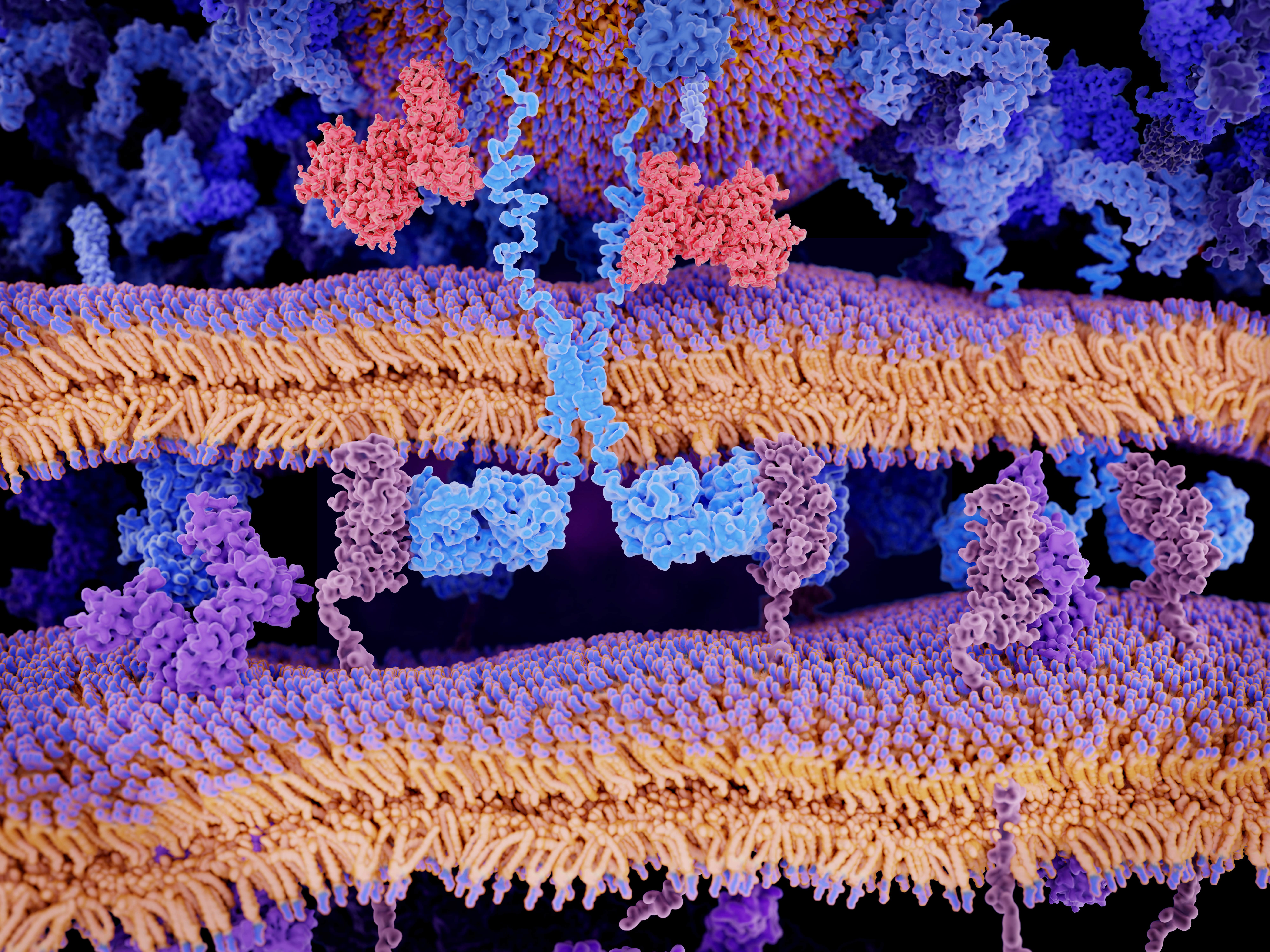Recent years have seen increased research interest in the potential of chimeric antigen receptor (CAR)-T cancer therapies. This approach uses genetic engineering to modify T cells from a person with cancer so that the cells will make CARs, proteins that can detect cancer cells and identify them as targets for killer T cells. Although such treatments have the potential to help patients achieve sustained remission, their success so far has been limited to the treatment of leukemias, lymphomas, and myelomas.
However, a pair of studies has found that “hacking” the immune cells via genetic engineering allows them to not only recognize tumor cells but also get past their defenses. The research may enable the application of CAR-T therapy to a larger number of cancer types.
Flipping the Switch
One of the studies, led by Ahmad Khalil, a synthetic biologist at Boston University, engineered CAR-T cells using a system of 11 DNA sequences. The researchers demonstrated that they could switch the T cells on and off using approved medications that interact with the genetic sequences. The T cell activities and their ability to produce a protein called IL-2, which stimulates immune responses, were thus controlled through medication.
For the second study, researchers, led by synthetic biologist Wendell Lim at the University of California, San Francisco, genetically programmed CAR-T cells to make IL-2 only when the engineered T cells encounter cancer cells. The researchers discovered that IL-2 production was most effective against tumors in mice with pancreatic cancer when it was activated via a different pathway than the one used to recognize the cancer cell.
Targeting Tumors
Both studies suggest that the technology could be harnessed to target solid tumors, which have been difficult for CAR-T drugs to attack. Tumors are more difficult for the engineered cells to enter, and they can suppress the immune response to defend themselves. “These engineered T cells overcome both roadblocks,” said Andrea Schietinger, a tumor immunologist at Memorial Sloan Kettering Cancer Center in New York City. “They find their way in and then, once they’re in, get the signals in the right space and at the right time to be really effective in killing the cancer cell.”
The new technology and ability to switch the T cells on and off, researchers say, could make them more effective by giving them a rest period. Otherwise, the tumor-fighters can become exhausted and inactive after a prolonged period of activity.
Furthermore, the studies illustrate how CAR-T therapy research can expand to target a greater number of cancers. According to systems immunologist Grégoire Altan-Bonnet at the US National Cancer Institute, “We know a lot of the parts, now it’s being able to put them together and explore,” he says. “If we engineer the system well, we can really put the tumors into checkmate.”
Beyond T Cells
It may be possible to apply the technology developed by Khalil and his colleagues to other cell types, such as immune cells called macrophages. This would have the advantage of making it easier to attack solid tumors. Because the system was developed to be flexible, he expects that specialists in cancer immunotherapy can modify it to meet their needs. “I hope this will capture the imagination of a lot of researchers out there,” he says.
Moving forward, researchers will continue to explore the possibilities of using CAR-T therapies to treat a wider range of cancers and other diseases. With new developments and research advances, the potential for new and improved treatments is encouraging.
Did you enjoy this blog post? Check out our other blog posts as well as related topics on our Webinar page.
QPS is a GLP- and GCP-compliant contract research organization (CRO) delivering the highest grade of discovery, preclinical and clinical drug research development services. Since 1995, it has grown from a tiny bioanalysis shop to a full-service CRO with 1,200+ employees in the U.S., Europe and Asia. Today, QPS offers expanded pharmaceutical contract R&D services with special expertise in neuropharmacology, DMPK, toxicology, bioanalysis, translational medicine and clinical development. An award-winning leader focused on bioanalytics and clinical trials, QPS is known for proven quality standards, technical expertise, a flexible approach to research, client satisfaction and turnkey laboratories and facilities. Through continual enhancements in capacities and resources, QPS stands tall in its commitment to delivering superior quality, skilled performance and trusted service to its valued customers. For more information, visit www.qps.com or email [email protected].






